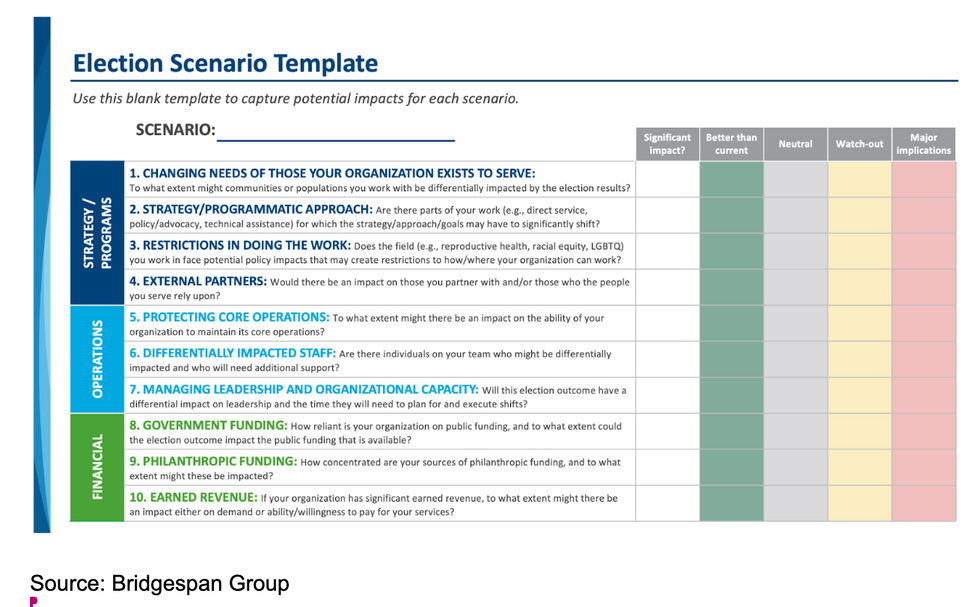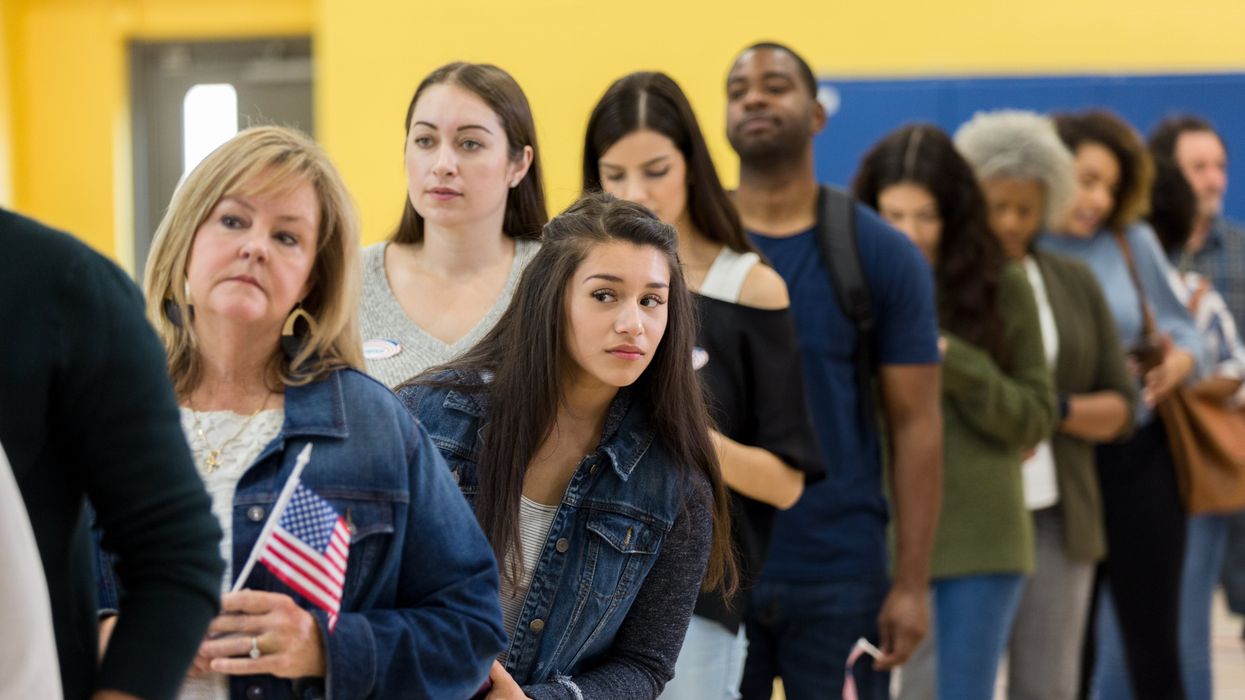Solomon is faculty in the Stanford University's design school and a creator of civic futures programs like Vote by Design, The Futures Happening, and The Team.
As we move closer to the election, it's tempting to oscillate between obsessive news consumption and complete disengagement. Both responses are understandable — they're deeply rooted in our evolutionary biology.
Our brains are wired for a "fight or flight" response to uncertainty, a mechanism that served our ancestors well when facing immediate physical threats. But in today's complex and polarized political landscape, this instinctive defensive posture can leave us perpetually anxious and reactive, rather than thoughtfully prepared.
As someone who has spent over two decades helping leaders and students learn to navigate complexity and envision multiple futures, I've seen firsthand how the right tools can transform anxiety about the unknown into constructive action. Through my work with organizations ranging from Fortune 500 companies to emerging democracy reform nonprofits I've found that scenario planning offers something uniquely valuable: a way to engage with uncertainty that neither minimizes its significance nor leaves us paralyzed by it.
Scenario planning used to be a process reserved for military planners and elite organizations. Over the last decade, and magnified by the pandemic, it has evolved into a more accessible approach for organizations, communities and individuals seeking to build resilience in uncertain times. The power isn't in predicting the future — an impossible task, even for "expert" pollsters. Instead, scenario planning invites us to explore multiple possible futures to assess our preparedness and inform robust decisions that can strengthen us regardless of what unfolds. This process helps rewire our instinctive defensive response to uncertainty, creating neural pathways that lead to more strategic and proactive thinking.
Many organizations are putting these principles into practice in compelling ways. The Bridgespan Group, a global consultancy, developed an open Election Year Resource for Nonprofit Leaders to help social-sector organizations think systematically about potential risks and opportunities. Its framework explores four potential electoral outcomes: "A Democratic Trifecta," "A Republican Trifecta" and two variations of "A Divided Government." Using a robust strategic diagnostic, leaders, boards and funders can assess their organizational strength across strategy, operations and funding –= identifying actions that make sense regardless of the election outcome.
The WithIn Collaborative takes a different but complementary approach, focusing on building internal capacity and resilience. Its Election Prep Guide begins with a crucial foundation: understanding our present-day resources and strengths. It asks powerful questions like "Who are the loved ones, ancestors, colleagues and allies who are with me in times of celebration, and in times of change and uncertainty?" and "When I am up against something unexpected, what are the practices that help steady me?" This centering on the present moment — and things that are in our control — strengthens our awareness of available options, even when the world feels filled with ambiguity.
The WithIn scenario framework is elegantly simple yet profound, exploring three potential outcomes: a Democratic victory, a Republican victory or an inconclusive election. While these vignettes may not capture every detail of what might unfold, they offer productive portals for engaging with highly probable outcomes, allowing us to rehearse our responses in advance.
The power of scenario planning is that it works at multiple scales, starting with your own stance towards the future. Ask yourself: Where will you be during and after the election? Who will you be with? What support systems do you want to have in place? What information sources will you trust? How will you manage your emotional well-being? These aren't just practical questions — they're anchors that can help ground us when uncertainty peaks. By thinking through these scenarios now, we create mental and emotional scaffolding that can support us through whatever unfolds.
Robust actions — those that make sense across multiple scenarios — might include strengthening community connections, diversifying information sources, building emergency savings or developing new skills. While these moves won't predict the future, they'll make us more resilient to whatever future arrives.
While we can't control everything that happens, we're not powerless. By systematically exploring different possibilities while identifying concrete actions we can take now, we maintain our ability to act meaningfully in the present moment. That's not just good planning — it's a vital form of civic engagement and collective and personal resilience building.
I encourage you to start having these conversations in your own communities and organizations. The future may be uncertain, but by preparing together, we can face it with greater confidence and capacity.




















 From left to right: Gabriel Cardona-Fox, Bud Branch, Joe Concienne
From left to right: Gabriel Cardona-Fox, Bud Branch, Joe Concienne 
Trump & Hegseth gave Mark Kelly a huge 2028 gift